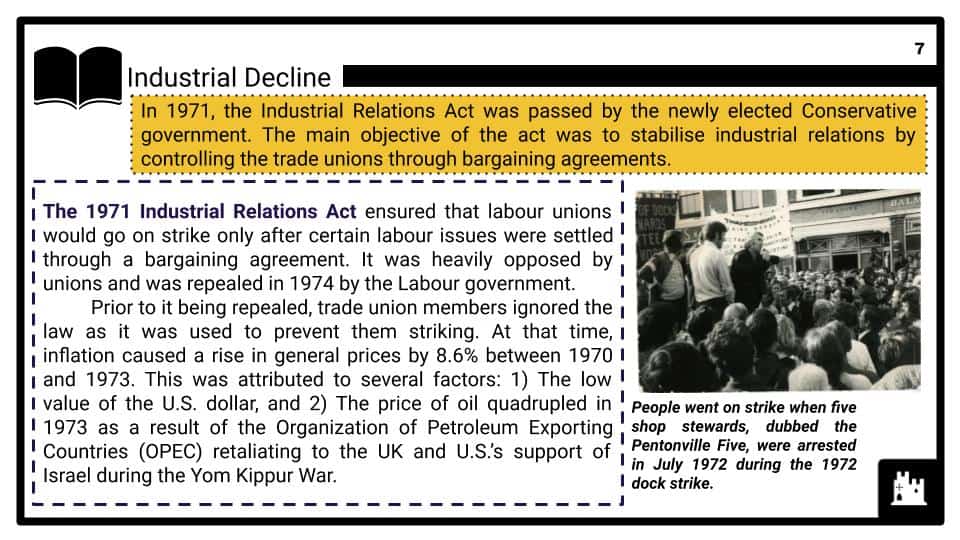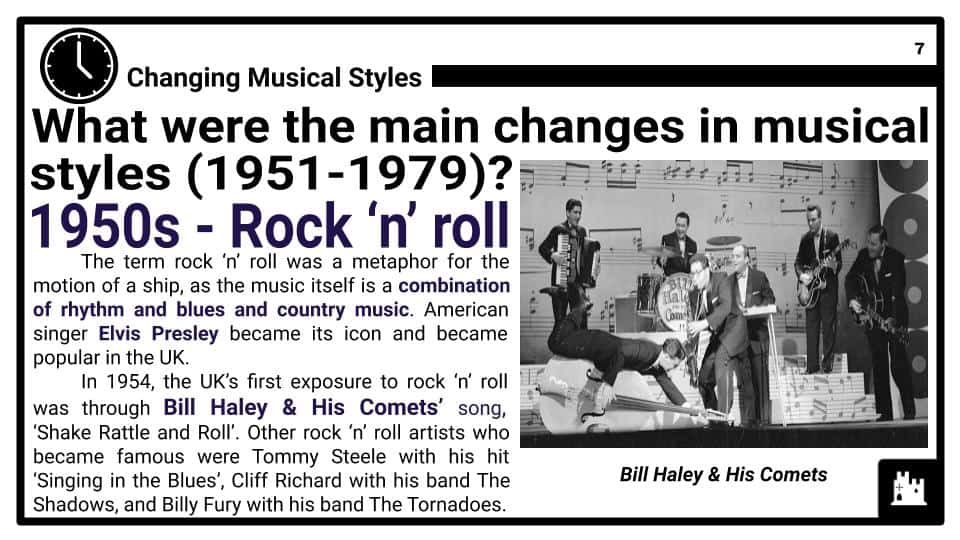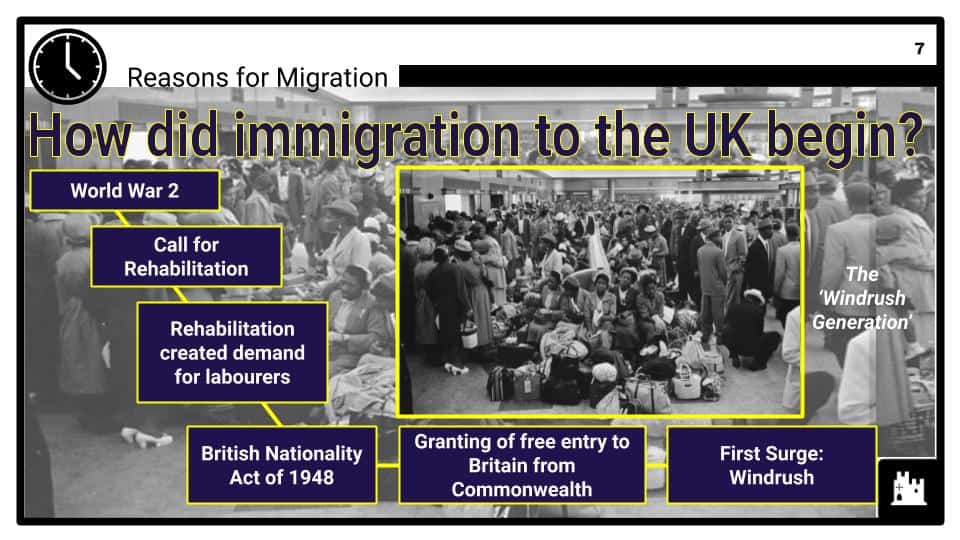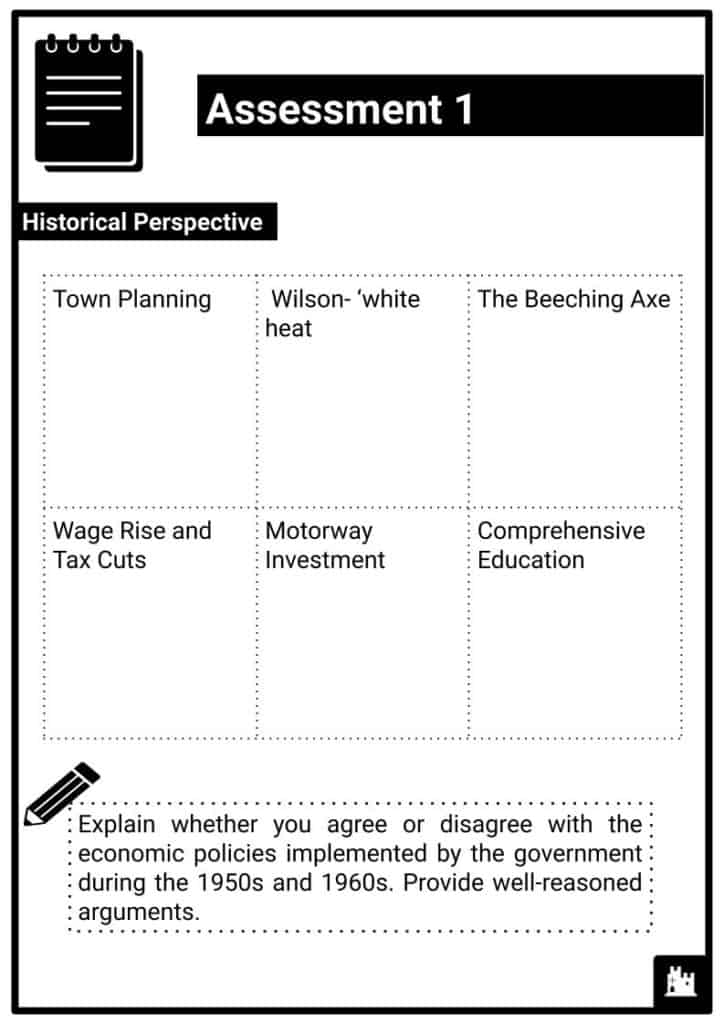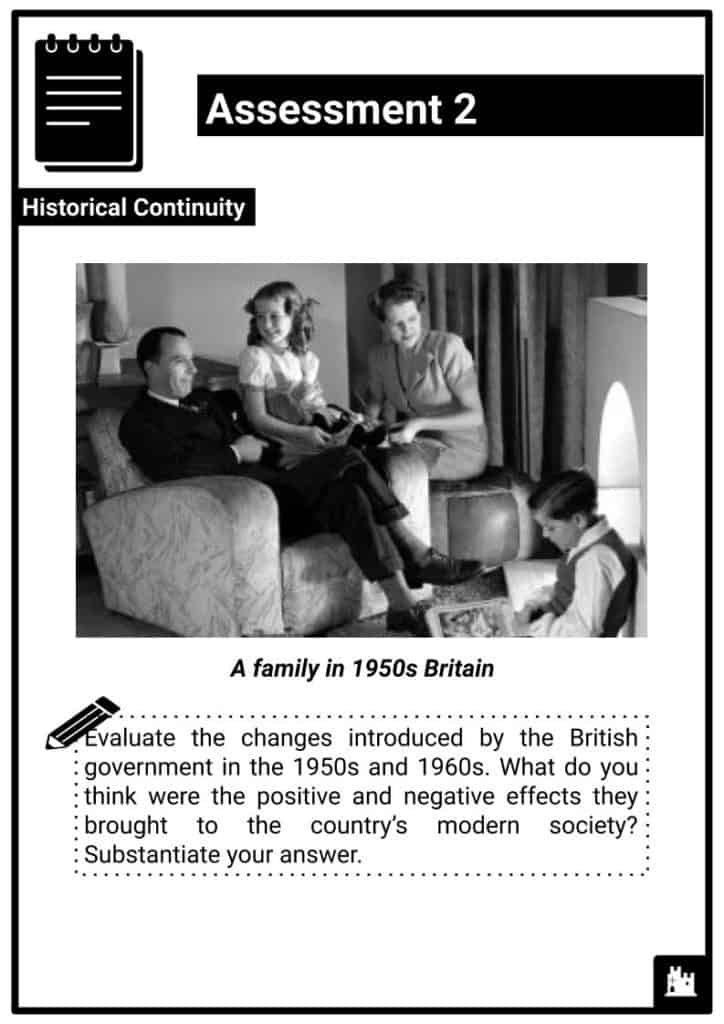Teach any Eduqas module 1D: Austerity, Affluence and Discontent: Britain, 1951-1979, no prep needed!
Do you want to save dozens of hours in time? Get your evenings and weekends back? Be fully prepared to teach any Eduqas GCSE topic 1D?
Every Eduqas topic 1D is covered, and each module comes complete with:
Eduqas GCSE History Component 1: Studies in Depth
- Written examinations: 2 hours (comprising two papers of 1 hour duration each)
- 50% of qualification 100 marks (plus 6 marks for spelling, punctuation and grammar and use of specialist terms)
Learners study two Studies in Depth, one British and one non-British, from eight options in total. This component focuses study on substantial and coherent short time scales. Studies in Depth will provide learners with the opportunity to study history in greater depth and consequently understand the complexity of a society or historical situation more effectively.
Studies in Depth will focus study on different historical eras and different geographical contexts. This component encourages learners to use a wide range of historical sources. Learners should also study different historical interpretations of specific events and issues.
The two options studied must be from different historical eras (Medieval, 500-1500; Early Modern, 1450-1750; and Modern, 1700-present).
This module is from the Modern era, 1700 – present.
Curriculum for 1D. Austerity, Affluence and Discontent: Britain, 1951-1979
- This option focuses in depth on the turning points that have affected the development of the UK during the mid to late 20th century. Through the selected themes, students will be able to discuss the developments, events and personalities which have shaped the modern history of Great Britain.
- Themes span major political, social, cultural and economic influences that affected the lives of British people including the impact of WWII on the British economy and recovery efforts, the changing lives of women in the aftermath of WWII and the arrival of labour-saving devices and reproductive control, the evolution of fashion and entertainment from the 50s through to the 70s, changing attitudes to authority in the wake of conflict between labour unions and the government, feminist movements, political scandals, mass emigration of people from the Commonwealth and the impact of fuel and electricity shortages in the 70s.
- Candidates should be able to map and discuss the circumstances that led to social unrest and the policies implemented, amended and repealed in order to address the demands of the people.
- Candidates will be required to compare and contrast the years immediately before, during and after WWII in the UK and be able to explain its impact on subsequent decades.
- Candidates should be able to identify and discuss the conflicting ideologies of patriarchy versus feminism as well as why nationalists perceived the arrival of immigrants as a threat to national identity.
- Candidates should be able to unpack how the Cold War influenced tensions in the UK over the building of nuclear facilities and testing of nuclear weapons.
- Candidates must also be able to link changes to music and fashion to influences from across the Atlantic in America while also analysing how choices in fashion and music also served as defiance of the prevailing social norms and political authority.
- Students should be able to form well-reasoned judgements based on historical facts, while also including issues of the wider historical debate of how and why the UK changed in the way it and how those changes paved the way for modern Britain.
- They should also address the key issues in each topic area using a range of historical sources.
- The required content in italics shows which key features and characteristics of the period must be studied.
Key Questions and required content
Britain in the early 1950s
What were the main issues facing the people of Britain in the early 1950s?
Required content: Austerity and rationing; housing problems; debt; nationalised industries; the cost of welfare budget; industrial decline.
The end of austerity
What factors contributed to the economic recovery in the 1950s and 1960s?
Required content: Town planning; wage rises and tax cuts; Macmillan- ‘never had it so good’; Wilson- ‘white heat’; motorway investment; the Beeching axe; comprehensive education.
Popular entertainment and fashion
What were the main changes in entertainment and fashion in
this period?
Required content: Changing musical styles; listening to music; popular groups and artists; the impact of TV; American culture; fashion – teddy boys, mini-skirts, Mods, Rockers, hippies and punk.
The changing lives of women
How far did the lives of women change in this period?
Required content: Labour-saving devices; family, marriage, divorce and abortion; education and employment; women’s rights; the impact of the pill; equal opportunities; women’s liberation.
Changing attitudes to authority
How did attitudes to authority change in the 1950s and 1960s?
Required content: Permissive society; legalising homosexuality; drugs; abolition of the death penalty; Profumo Scandal; CND; student protest in 1968.
Immigration
What impact did immigration have on British society during
this period?
Required content: Reasons for migration; British Nationality Acts 1948-65; Caribbean immigration – Windrush; race riots; Notting Hill 1958; Enoch Powell; right-wing groups; race relations legislation.
Political and economic problems
What were the main political and economic problems in the
1970s?
Required content: Industrial decline; Heath, the miners and the three day week; the Winter of Discontent and the 1979 General Election; civil unrest in Northern Ireland; Bloody Sunday and internment; IRA bombing campaign.

